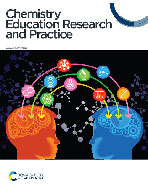The conceptual profile of equilibrium and its contributions to the teaching of chemical equilibrium
Abstract
The learning of scientific concepts is one of the main research subjects in science education. Although little used, the theory of conceptual profiles allows the study of this knowledge, taking into account the presence of different ways of thinking about a certain concept in the same individual. This study aimed to build a conceptual profile for the concept of equilibrium and, based on this profile, relate it to the teaching and learning process of chemical equilibrium. Four zones were proposed to comprise the profile, called intuitive, static, kinetic and energetic. Subsequently, we analyzed the responses obtained in a questionnaire by students of Chemistry courses in order to group similar ways of speaking into categories related to the concept of equilibrium and the proposed zones for the conceptual profile. In the answers, we found some alternative conceptions already identified by the literature. Based on the results, the proposed zones for the conceptual profile of equilibrium indicate that establishing associations between the state of chemical equilibrium and the notion of equality can lead to conceptual errors and, therefore, it is suggested to give priority to the notion of stability. We also propose the use of studies on the History and Philosophy of Sciences applied to the teaching of chemical equilibrium to stimulate the emergence, dialogue and enrichment between the zones of conceptual profile in individuals.


 Please wait while we load your content...
Please wait while we load your content...